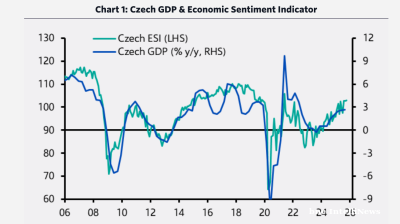Hungary has made no progress on key rule-of-law concerns flagged in previous years, according to the European Commission’s latest rule-of-law report released on July 8. The EU executive continues to voice serious concerns over judicial independence, anti-corruption efforts, media pluralism and the state of democracy in the country.
The only improvement identified by the Commission was an increase in judicial salaries.
The report highlights persistent issues with the independence of Hungary’s judiciary. The National Judicial Council (OBT) was repeatedly excluded from consultations on legislation affecting judicial appointments and promotions, despite its formal role in the process.
The Commission also flagged "internal institutional pressure" on judges, especially those who speak out on threats to judicial independence.
While Hungary has implemented certain anti-corruption measures in response to EU pressure, high-level corruption remains largely unaddressed, with serious cases going uninvestigated and unpunished. The report also highlights ongoing concerns over the lack of transparency in political financing and asset declarations, pointing out that no authority is responsible for verifying the accuracy of MPs’ wealth statements.
The Commission also raises concerns about the lack of independence of Hungary’s media regulator, the non-transparent distribution of state advertising, and growing pressure on independent journalists. The government has taken no steps to address previous concerns regarding media pluralism. There are still no plans to regulate state advertising or ensure the independence of the Media Authority and public broadcasters.
The state remains the largest advertiser in Hungary, with the vast majority of public ad spending flowing to pro-government outlets. Although the law states that public media is independent, in practice it operates under government control and serves as a mouthpiece of the cabinet.
The Hungarian government continues to rely heavily on emergency decrees, bypassing Parliament in the legislative process – a practice that the Commission says undermines legal certainty. Key legislative proposals are often submitted without public consultation.
Foreign companies regularly face discriminatory regulations and selective competition authority decisions, further weakening legal certainty and market fairness. The report also stresses the lack of procedural safeguards and oversight in secret surveillance.
Civil society groups are increasingly constrained, especially those critical of the government. The Commission warns that the pending the controversial "transparency" bill would threaten the operation of NGOs deemed risky by the government.
Michael McGrath, the European Commissioner for Justice, described the Hungarian situation as "deeply disappointing" at a press conference in Strasbourg, adding that the Commission stands ready to use additional tools to uphold the rule of law. He pointed out that €18bn in EU funds destined for Hungary remain frozen due to ongoing rule-of-law concerns.
The report also cites the 2025 Eurobarometer survey, according to which 88% of Hungarian respondents believe corruption is widespread, compared to the EU average of 69%, while one-third feel personally affected by corruption in their daily lives. The Integrity Authority, created at the EU’s request, is said to be under-resourced and unable to perform its tasks effectively.
News

Serbian police arrest dozens during clashes outside parliament
The confrontation erupted when anti-government protesters faced off with ruling party supporters camping opposite the parliament building.

Iran-US ties impossible, Supreme Leader Khamenei declares
Iran's Supreme Leader Ayatollah Ali Khamenei rules out cooperation with United States unless Washington withdraws regional military presence and support for Israel, speaking ahead of 1979 embassy takeover anniversary.

Moldova’s new government sworn in with goal to sign EU accession treaty by 2028
With a fragile majority in the parliament, the new cabinet has pledged to prioritise EU accession and economic development.

Northern Afghanistan hit by M6.3 tremor
A powerful earthquake has struck northern Afghanistan, leaving at least four people dead and scores injured, according to local officials. The numbers are expected to rise significantly.




